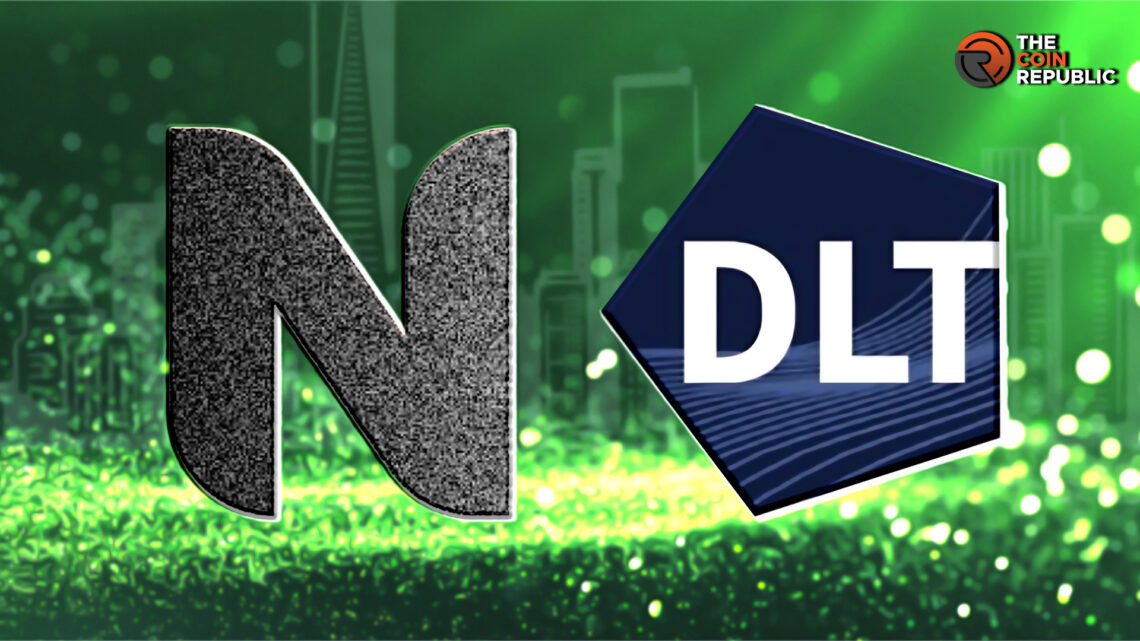- 1 Neutral is a platform that enables users to trade tokenized carbon credits, renewable energy credits, and carbon forward contracts.
- 2 The companies are picturing a future in which businesses, individuals and investors will actively contribute to environmental conservatism with the help of tradable assets.
- 3 The EU is highly dedicated to working in space and this integration can act as a pioneer in creating tokenized environmental assets and facilitating their trading in regulated markets.
Neutral provides a platform with specialized market infrastructure to enhance efficiency, transparency, and trust for environmental assets. It empowers users to buy, sell and interact with tokenized carbon credits, renewable energy credits, and forward contracts.
DLT Finance is operating as a BaFin-licensed investment firm (DLT Securities GmbH) and a crypto-asset custodian (DLT Custody GmbH), providing infrastructure for businesses and institutions to integrate digital asset brokerage and custody into their offerings.
Neutral and DLT Finance have joined to introduce Europe’s first regulated trading platform for tokenized environmental assets, including carbon and renewable energy credits. This integrated approach offers efficiency and ease of interaction for market participants.
The innovative solution combines Neutral’s cutting-edge market infrastructure for environmental assets with DLT Finance’s regulatory expertise to create a platform specifically designed for the intricacies of environmental asset markets.
Tokenization of Environmental Assets
As advancements and developments in technology continue to reshape the world. It is important to consider the environmental impact of these innovations to maintain the sustainability of these newly developed technologies.
The environmental challenges have become a global priority as the industry grows and faces the consequences of climate change, resource depletion, and pollution. Moreover, in the development of new and innovative technologies, it is important to consider environmental impacts and produce sustainable solutions.
Importance of Environmental Study
The traditional linear model of production and consumption emphasises extraction, production, and disposal and has proven disastrous for the planet. This is why integrating environmental sustainability into the core of newly developed technologies has become essential to creating a reliable and sustainable technological future.
Blockchain Technology in Tokenization of Environmental Assets
Tokenization facilitates the representation of tangible and intangible assets as digital tokens. These tokens can be traded, allow fractional ownership, increase trackability and lead to improvements in liquidity and transparency.
It is important to efficiently manage assets to minimize waste, conserve resources and reduce carbon emissions. The process of tokenization provides a digital alternative to traditional paper-based systems, reducing paper consumption and waste generation.
Moreover, digital assets eliminate physical transportation and storage, which further reduces carbon emissions associated with logistics and infrastructure.
Benefits of Tokenization for the Environment
Reduction in the consumption of Paper and waste
The representation of assets as digital tokens on blockchain eliminates the need for physical certificates, contracts, and documents. It significantly reduces paper consumption, deforestation, waste generation, and the associated environmental hazards.
Reduction in the carbon footprint with digitization
The replacement of physical asset management processes with digital processes, such as tokenization, reduces carbon emissions generated through transportation, storage, and physical infrastructure. Digital assets can be accessed and traded through electronic platforms, neglecting the need for physical transportation.
Energy Efficiency in operations and transactions
The tokenization utilizes blockchain technology that enables efficient and secure peer-to-peer transactions. In comparison to traditional systems, blockchain-based transactions are executed with reduced intermediaries, energy consumption and associated carbon emissions.
Increased transparency and accountability in environmental practices
The decentralized and transparent nature of blockchain technology avoids opportunities for increased transparency and accountability in environmental practices. It records asset ownership, transaction history, and relevant environmental data on a blockchain, so stakeholders can confirm compliance with environmental regulations, monitor sustainability metrics and encourage responsible environmental practices.
Environmental Hazards of Tokenization
Energy consumption
Proof-of-work consensus mechanism-backed blockchain networks consume a significant amount of energy. Validating transactions and maintaining the blockchain require energy-intensive mining processes that contribute to carbon emissions and have an environmental impact.
Impact of cryptocurrency mining on the environment
The mining of cryptocurrency is an essential process in blockchain networks and it requires substantial computational power and energy consumption. If the energy is generated from non-renewable sources, mining activities can increase carbon emissions and environmental degradation.
E-waste concerns related to hardware
Tokenization and blockchain technologies need specialized hardware, such as mining rigs or nodes, to participate in operations. The disposal of obsolete hardware contributes to electronic waste and if not handled properly, it can lead to environmental contamination.
Conclusion
The European Union has emerged as the front-runner in environmental markets. It is hosting the world’s largest compliance carbon trading scheme, valued at 750 Billion euros in 2022. The adoption of MiCA in 2023 backs the EU’s regulatory views on tokenized trade and smart contracts.
The integration of Neutral and DLT Finance will change the way tokenized environmental assets such as carbon credits are traded and managed. It will make environmental assets highly acceptable, transparent, and impactful.
FAQs
What will be the benefit of integrating technological progress and regulatory frameworks?
It will improve legitimacy, price discovery, and liquidity in the on-chain environmental asset ecosystem.
Which is the current base location of Neutral?
Neutral Platform is based in Germany and this integration is one of the few projects that Neutral is handling outside its home country.
Saurav Bhattacharjee is in charge of the Broadcast development team of The Coin Republic.
He has been covering the Metaverse and NFT niche for the past 2 years.
With stellar interviews on his portfolio like Nicehash, Paxful, WallstreetWolvesNFT, Bitholla, Totemfi, EOS.io etc. Saurav has spearheaded the NFT SUPERSTARS AWARD and successfully hosted the first award in 2021.


 Home
Home News
News






